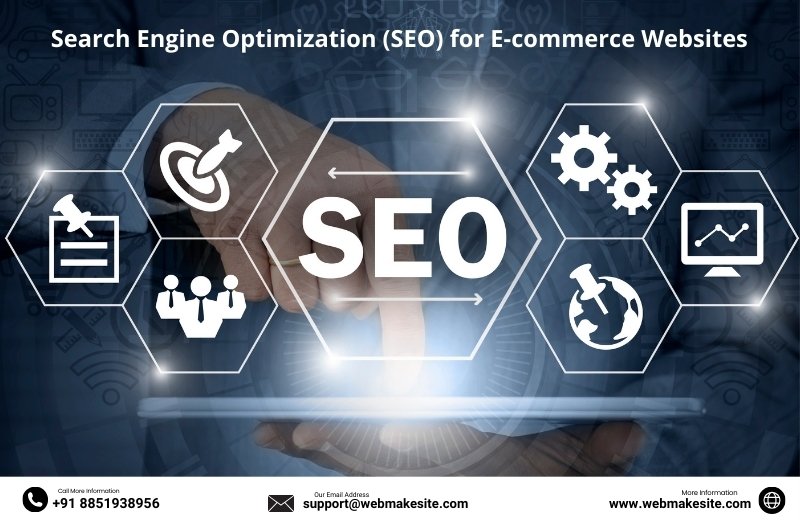In today’s digital era, an e-commerce website is more than just a platform to sell products—it’s the digital face of your brand. However, no matter how attractive your website looks or how amazing your products are, if your target audience cannot find you online, your business will struggle to grow. That’s where Search Engine Optimization (SEO) comes in.
At Webmakesite, we specialize in building result-driven SEO strategies for e-commerce websites to help businesses increase visibility, attract customers, and boost sales.
Why is SEO Important for E-commerce Websites?
-
Increased Visibility
With millions of online stores competing for attention, SEO helps your products rank higher in Google and other search engines, ensuring potential buyers find you first.
-
Cost-Effective Marketing
Unlike paid ads that stop once you stop spending, SEO brings long-term traffic and continuous growth without burning your budget.
-
Better User Experience
SEO focuses not only on ranking but also on improving website structure, navigation, and speed—leading to a smooth shopping experience.
-
Higher Conversion Rates
When customers find exactly what they’re searching for, they’re more likely to buy from your store.
Key SEO Strategies for E-commerce Websites
1. Keyword Research
Find out what your potential customers are searching for. Use tools like Google Keyword Planner, Ahrefs, or SEMrush to identify product-related keywords, long-tail keywords, and buyer-intent search terms.
2. On-Page SEO
-
Optimize product titles, descriptions, and meta tags with relevant keywords.
-
Use high-quality images with ALT text.
-
Create clean, keyword-rich URLs (e.g., example.com/men-shoes/nike-running-shoes).
3. Technical SEO
-
Ensure fast page loading speed.
-
Make the website mobile-friendly.
-
Fix broken links and use proper redirects.
-
Submit an XML sitemap to Google.
4. Content Marketing
E-commerce SEO is not just about products—it’s also about valuable content. Writing blogs, buying guides, product reviews, and FAQs can improve visibility and establish authority.
5. Link Building
Build backlinks from trusted websites, influencers, and blogs to boost your domain authority and rankings.
6. Local SEO
If you have a physical store along with your online business, optimize your Google My Business profile to attract nearby customers.
Benefits of SEO for Your Online Store
✅ Higher organic traffic
✅ More qualified leads
✅ Lower marketing costs compared to paid ads
✅ Long-term brand visibility
✅ Increased sales and revenue
Final Thoughts
SEO is the backbone of any successful e-commerce business. With the right SEO strategy, your website can reach thousands of potential buyers, improve conversions, and grow sustainably in a competitive online marketplace.
At Webmakesite, we help e-commerce businesses with customized SEO solutions—from keyword research to technical audits, on-page optimization, and link-building strategies.
👉 Looking to grow your e-commerce sales with SEO? Contact Webmakesite today and let’s build your success story together!


 2025-08-20
2025-08-20 





Comments
Leave Your Comment